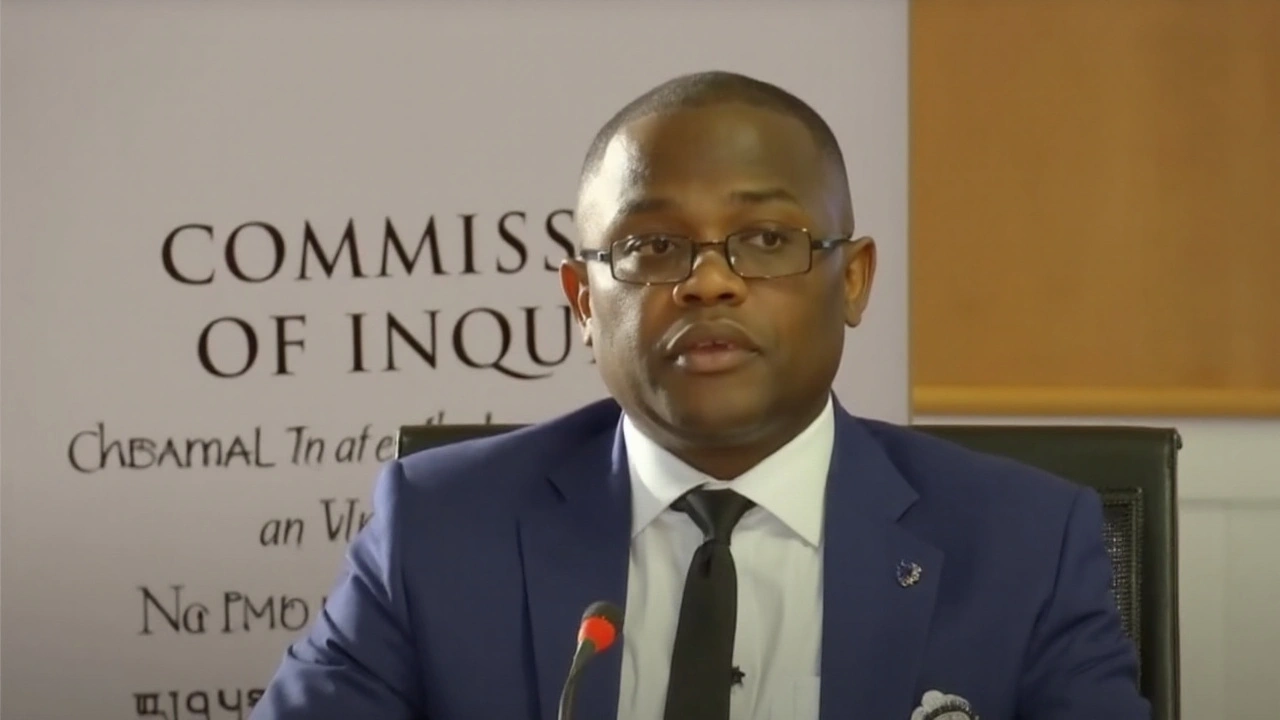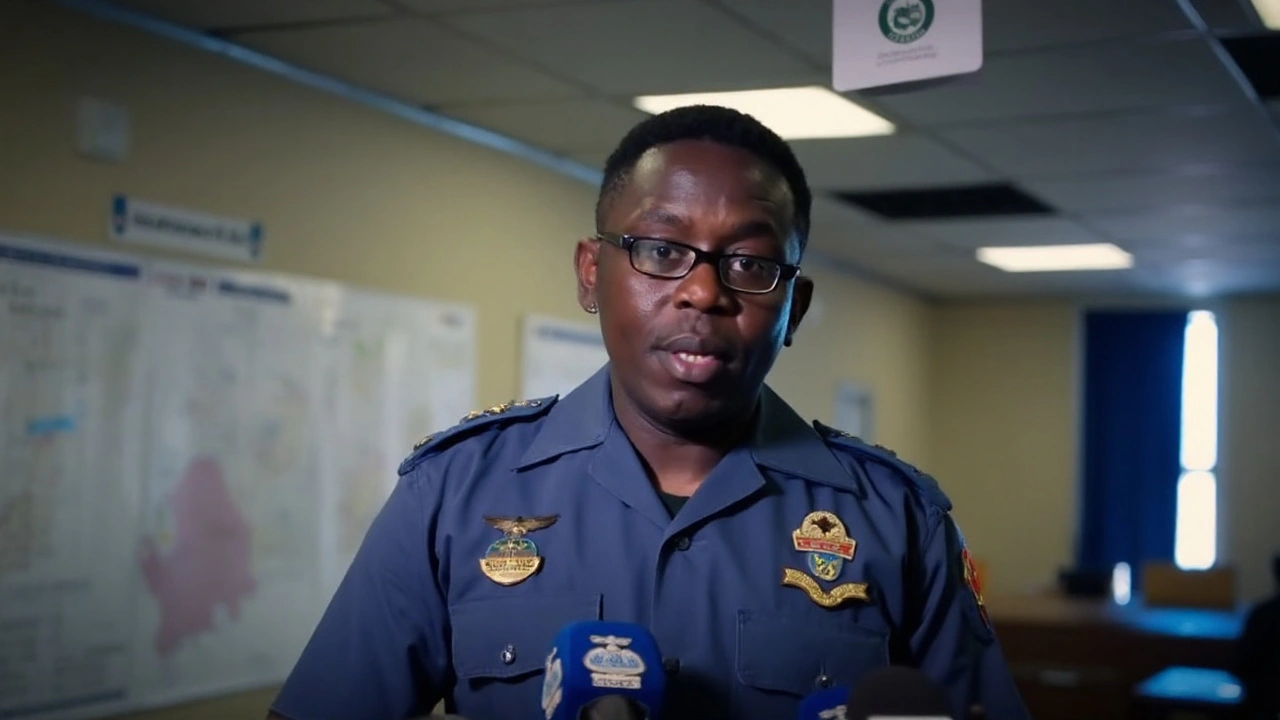Background to the Inquiry
The Madlanga Commission was set up to investigate a web of alleged criminality, political meddling, and corruption that has plagued South Africa’s criminal justice system, especially in KwaZulu‑Natal (KZN). The commission’s mandate covers everything from the alleged manipulation of police operations to the suspected influence of criminal syndicates on senior officials. Its formation follows a series of high‑profile killings and a growing public outcry that the government has turned a blind eye to politically motivated violence.
Earlier this year, Commissioner Lieutenant‑General Nhlanhla Mkhwanazi made headlines during a televised press briefing on July 6, when he hinted at an “unacceptable level of interference” from the Department of Police. He claimed that decisions affecting the Political Killings Task Team—an elite unit created to curb politically motivated homicides—were being driven by interests outside the law. Those statements set the stage for the commission’s first day, as both the media and civil‑society groups demanded a thorough, transparent investigation.

Commissioner's Testimony and Allegations
When the commission convened in Pretoria on September 17, Commissioner Mkhwanazi took the witness stand as the inaugural participant. He began by reiterating his July remarks, then laid out a detailed narrative of how he believes Police Minister Senzo Mchunu overstepped his constitutional authority.
Mkhwanazi claimed that, rather than receiving an official directive, he first learned about the proposed dismantling of the Political Killings Task Team via a WhatsApp message from a friend. The message allegedly contained a draft letter, signed in the minister’s name, ordering the team’s disbandment. According to the commissioner, no formal paperwork or cabinet approval ever materialised, suggesting the decision was being handled covertly.
The commissioner went further, presenting what he described as “hard evidence” linking the minister to criminal networks. He cited intercepted communications, financial records, and testimony from informants indicating that senior members of the minister’s inner circle were in regular contact with known syndicate leaders. Mkhwanazi insisted that these links were not speculative; they showed a pattern of the minister’s office receiving strategic advice from figures with clear criminal backgrounds.
In a dramatic moment, the commissioner read aloud a portion of a letter allegedly signed by Mchunu, which ordered the termination of the Political Killings Task Team. He argued that the letter’s tone and timing matched a broader campaign by certain political actors to weaken investigative bodies that could threaten their interests.
Beyond the task‑team issue, Mkhwanazi alleged that the minister had repeatedly tried to influence police investigations into politically sensitive cases. He recounted instances where senior officers were instructed to either drop cases or redirect resources away from probes that could implicate powerful political figures. The commissioner said he had documented these orders in a personal log, which he offered to the commission as part of the evidence package.
The commission’s chair responded by emphasizing the need for impartiality. He made it clear that the inquiry would not assume the truth of any allegation without corroborating proof. All individuals named in the commissioner’s testimony, including Minister Mchunu, would be invited to appear before the panel and submit counter‑evidence. The chair also reminded the public that the commission’s findings could lead to criminal charges if the evidence substantiates the claims.
Analysts watching the hearing note that the stakes are high. If the allegations are proven, they could trigger a political crisis, prompting calls for the minister’s resignation and possibly a broader overhaul of police oversight mechanisms. Conversely, if the commission finds the claims unfounded, it could damage the credibility of the KZN police leadership and embolden critics who argue the department is politicised.
For now, the Madlanga Commission continues to collect testimonies, documents, and forensic data. The next sessions will hear from former officials, whistle‑blowers, and possibly the minister himself. South Africans, especially those living in the hard‑hit regions of KZN, are watching closely, hoping the inquiry will finally provide answers to the systemic issues that have fueled political killings for years.


Yogesh Dhakne
September 25, 2025 AT 05:50Still, if even half of this is true, it's a whole new level of corruption.
kuldeep pandey
September 26, 2025 AT 17:33Hannah John
September 27, 2025 AT 08:32dhananjay pagere
September 27, 2025 AT 19:43Shrikant Kakhandaki
September 29, 2025 AT 05:05bharat varu
September 30, 2025 AT 19:30Vijayan Jacob
October 2, 2025 AT 14:53Saachi Sharma
October 4, 2025 AT 02:23shubham pawar
October 4, 2025 AT 05:32Nitin Srivastava
October 4, 2025 AT 06:19Nilisha Shah
October 5, 2025 AT 01:58Kaviya A
October 6, 2025 AT 22:27Supreet Grover
October 7, 2025 AT 12:38Saurabh Jain
October 8, 2025 AT 00:54Suman Sourav Prasad
October 9, 2025 AT 22:36Nupur Anand
October 10, 2025 AT 00:34